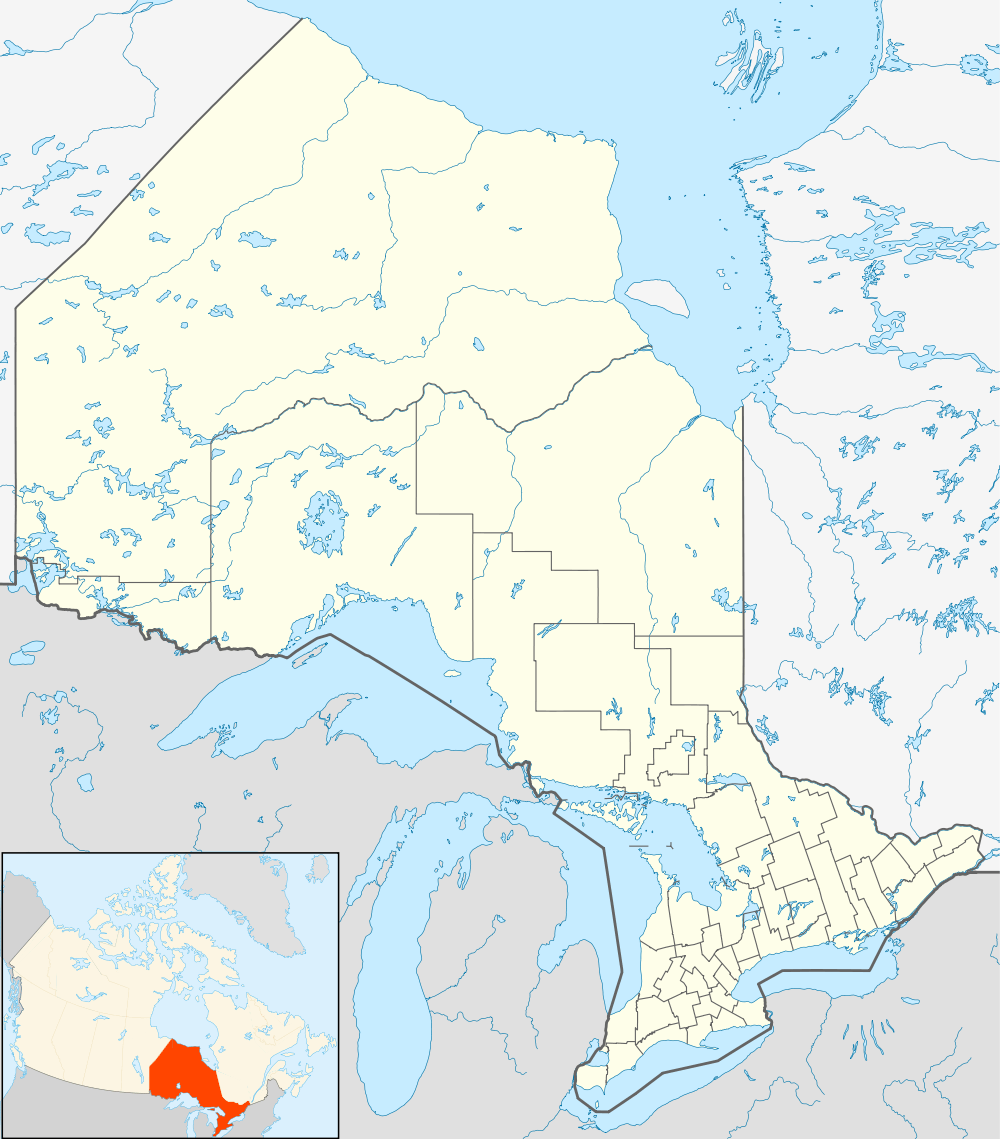Creighton Mine
|
| |
| Location | |
|---|---|
 Creighton Mine Location of the mine within Ontario | |
| Location | Greater Sudbury |
| Province | Ontario |
| Country | Canada |
| Coordinates | 46°27′50″N 81°10′29″W / 46.46389°N 81.17472°WCoordinates: 46°27′50″N 81°10′29″W / 46.46389°N 81.17472°W |
| Production | |
| Products | Nickel |
| Type | Underground, originally open pit |
| History | |
| Opened | 1901 |
| Owner | |
| Company | Vale Limited |
| Website | vale.com |
Creighton Mine is an underground nickel mine, owned and operated by Vale (formerly known as INCO) in the city of Greater Sudbury, Ontario, Canada. It is currently the deepest nickel mine in Canada.[1]
History
Production at Creighton Mine began in 1901, and as of August 2004 there was an estimated 20 years of reserves left.
Production
In 2005 the mine produced an average of 3,755 tons per day on a 6 days per week schedule. Ore is processed off site at Vale's Clarabelle Mill.[2]
Creighton Deepening Project
Two projects are underway to allow deeper mining at Creigton Mine. The first is an $8-million, four-year diamond drill exploration program that will allow for ore tonnage to be defined down to the 10,000-foot (3,000 m) level. The second is a $48-million expansion project that will establish production ore at the 7,810-foot (2,380 m) level and bring 1.8 million tons of high-grade ore into production from 2006–2011.[3]
SNOLAB
Creighton Mine's 6,800-foot (2,100 m) level is the home of the world's deepest underground physics laboratory. Originally excavated for the Sudbury Neutrino Observatory (SNO), it has been expanded into a general-purpose facility called SNOLAB.
See also
References
- ↑ "The Canadian Encyclopedia". Retrieved 2007-08-20.
- ↑ Canadian & American Mines Handbook—75th Edition. Toronto, Ontario: Business Information Group. 2006. p. 493. ISBN 0-919336-65-5.
- ↑ Lacey, Keith (2006-08-22). "New life for Garson mine". Northern Life. Retrieved 2010-10-29.
Creighton Deepening Project: Two projects are underway to allow deeper mining at Creigton Mine. The first is an $8-million, four-year diamond drill exploration program that will allow for ore tonnage to be defined down to the 10,000-foot level. The second is a $48-million expansion project that will establish production ore at the 7,810-foot level and bring 1.8 million tons of high-grade ore into production from 2006–2011.